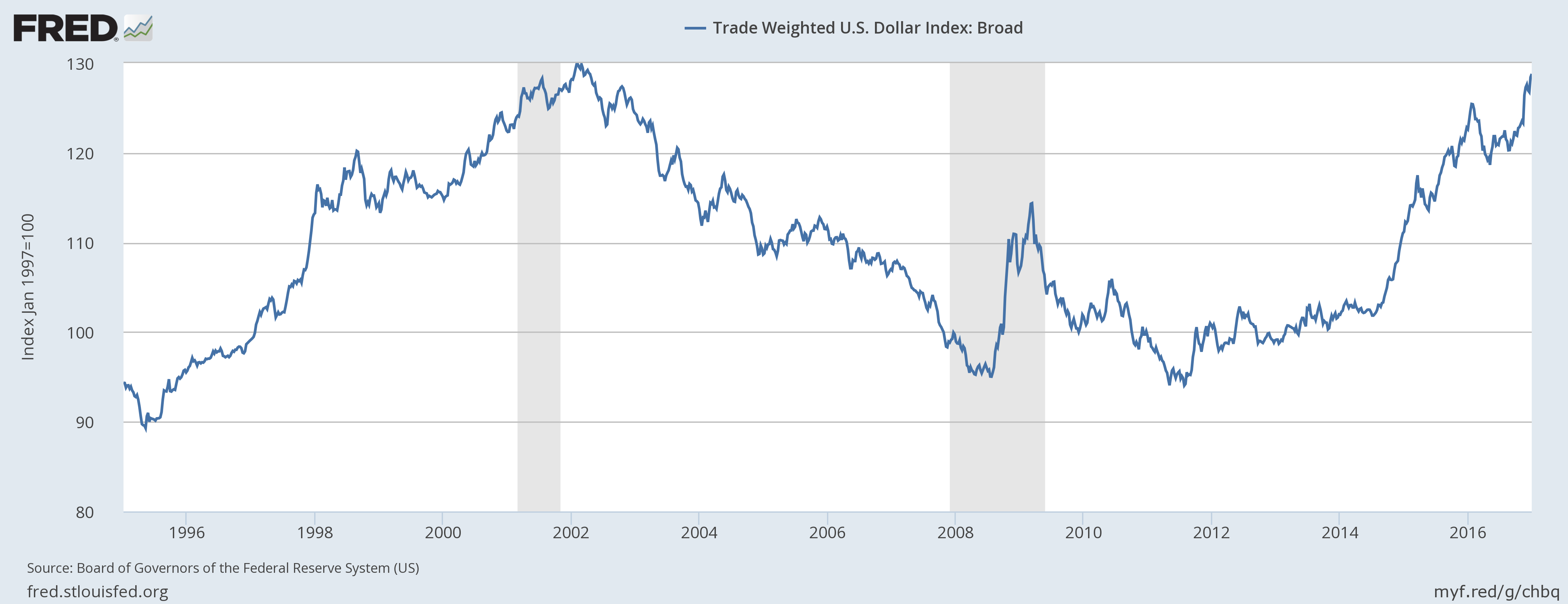January 09, 2017
One positive item that is on the agenda of the Republican Congress is an overhaul of the corporate tax code. The basic plan is to hugely simplify the tax in a way that would eliminate almost all deductions, most importantly the deduction for interest payments.
I am big fan of this change because the tax shelter industry is both an enormous source of waste in the economy and major generator of inequality. In particular, the private equity (PE) industry is largely about tax arbitrage, with much of the profits in the sector due to the fact that PE companies can radically reduce the liability of the companies they buy. This allows them to make a fortune when they resell them to the public, typically within a few years after they buy them. (See the book by my colleague Eileen Appelbaum and Rose Batt, Private Equity at Work: When Wall Street Manages Main Street.)
PE is the source of many of the biggest incomes in the country. Think of folks like Mitt Romney and Peter Peterson. PE partners often make tens of millions of dollars a year, and paychecks in excess of a hundred million are not uncommon. Eliminating this sort of tax arbitrage, as the Republican tax reform would do, would get rid of this source of waste generated enormous inequality.
For some reason, this part of the story has barely been mentioned. Ironically, the issue that has been highlighted is the treatment of imports and exports. While the tax is not directly a value-added tax like the ones in place in European countries, it has many features of a value-added tax. (A value-added tax is essentially a sales tax.) The proposed tax can be thought of as a hybrid between a value-added tax and an income tax.
Anyhow, the proposal would treat the tax in the same way that countries treat a value-added tax. It is applied to all imported items and refunded on exported items. Some proponents of the tax argue that this tax treatment is one of the great advantages of the tax since it would promote U.S. exports. The econ theorist types dismiss the argument by saying that changes in currency values, specifically a rise in the value of the dollar, would offset any gains in the competitiveness of U.S. goods and services from the tax.
Color me as skeptical on the full offset argument, but ironically the prospect of a full offset is being put forward as an argument against the tax. Neil Irwin makes the case in his column in the NYT this morning.
He argues first that a big rise in the value of the dollar would be bad news for folks in the developing world who have dollar denominated debt. Then we are warned that if we don’t get a rise in the dollar that fully offsets the impact of the tax on imports:
“It could increase the costs of imported goods that the poor spend a disproportionate portion of their income on, like clothing and gasoline. That would be bad news for poorer Americans even as it makes the overall economy more efficient.”
Okay, let’s inject a little reality into this story, always a dangerous path for economics discussions. Here’s the broad dollar index over the last twenty years, which gives the value of the dollar measured against the currencies of our major trading partners.

Note that the dollar rose by more than 40 percent from the start of 1996 to its peak in 2002. That was the strong dollar policy of then Treasury Secretary Robert Rubin. This also was when our trade deficit started to explode. Do folks remember all the people screaming against Rubin pushing a strong dollar because of the harm it would do to the countries in the developing world with dollar denominated debt? Yeah, I can’t quite remember that either.
Now notice the sharp drop in the dollar, roughly 25 percent, between its peak in 2002 and 2007, just before the recession began. Remember all the news stories about the plight of poor Americans because of rising import prices? Yeah, I don’t remember those either. In fact, the bigger story for most lower income families was probably the pick-up in the labor market over this period, at least in part associated with a declining trade deficit, which led to more job growth. The economy was creating jobs at reasonably healthy rate from 2005 to 2007 until the collapse of the housing bubble sank it.
This gets to the doctors’ point. Economists love to wring their hands over the problem that lower income people will pay more for their shoes if we have higher priced imports. However, they are also more likely to see a tight labor market and higher wages. This will generally be a net positive for them, even if not for every lower income family.
For some reason economists never try to tell doctors how much they would benefit from lower health care costs to their families if we ended the protectionism that forces us to pay twice as much for our doctors as doctors get in other wealthy countries. Under current rules, foreign doctors would get arrested for practicing in the United States unless they complete a U.S. residency program. This protectionism for doctors costs us around $100 billion a year in higher health care costs. Anyhow, those stupid doctors just don’t seem to understand how protectionism needlessly raises the cost of health care to their families. Maybe they would learn if we could get more economists to point out this fact.
It is worth noting that the tax rate now being tossed around is 20 percent. This means that both of these movements in the value of the dollar shown in the graph are larger than any changes we could plausibly see from the tax, so keep that in mind when listening to the hysteria in coming months.







Comments